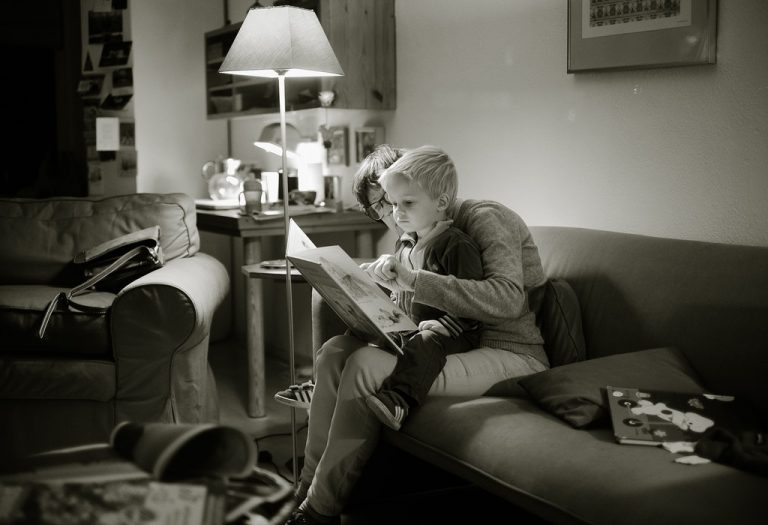Maternal Gatekeeping – Signs and Ways to Avoid It
Becoming a parent is one of the most important milestones in life. It’s a journey filled with happiness, challenges, and many learning moments. In this journey, mothers are usually found to play a huge role in caregiving for various reasons. However, some women may unknowingly fall into a pattern known as maternal gatekeeping. It refers to behaviours where a mother, consciously or unconsciously, limits the father’s involvement in childcare and household duties. It might be done with good intent, including concern for wanting everything to be perfect, but it negatively affects the family.
If this sounds like something you can relate to, keep reading to know the signs of maternal gatekeeping and how you can avoid it.
What Is Maternal Gatekeeping?
It is a pattern of behaviours and perceptions of a mother that may either consciously or unconsciously limit a father’s participation in the parenting process and household chores. It is usually based on traditional beliefs about child-rearing responsibilities and the wish to do everything perfectly (1).
Signs and Symptoms of Maternal Gatekeeping
Maternal gatekeeping behaviours may not be so obvious and could occur out of the best of intentions. Here are a few common signs that may indicate maternal gatekeeping:
1. Criticising the Father’s Parenting Style
Even when feeling discouraged, the father needs to remain as involved as the mother; however, if a mother continuously complains about how the father plays with the children, bathes them, or changes nappies and is always vocal about the do’s and don’ts of it and how it should be done, the father will eventually lose interest. This criticism comes from a belief that there is only one ‘right’ way to do things, which she feels is her way.
2. Unwilling to Divide Responsibilities
A mother who feels the need to take on most of the child-rearing and household duties herself, even when help is offered, may be exhibiting gatekeeping behaviours. This unwillingness can be due to a want to maintain control or ensure things are done to her standard.
3. Redoing Tasks
When a mother redoes tasks that the father has already completed, such as re-dressing the child, rearranging a room, or re-cooking a meal, it can send a message that his efforts are not good enough, leading to further disengagement.
4. Making All Decisions Alone
If the mother alone decides all matters related to children, such as their education or day to day activities, the father may feel unimportant.
5. Not Trusting the Other Parent
A mother who becomes stressed when the father cares for the children may be a sign of maternal gatekeeping. This anxiety can be caused by doubts about his ability to manage without her oversight, leading her to constantly check in or take over the task altogether.
Effects of Maternal Gatekeeping
Maternal gatekeeping can significantly impact family dynamics, affecting parents’ and children’s relationships. While often well-intentioned, these behaviours can lead to consequences that affect everyone involved. Here are a few effects of maternal gatekeeping:
1. Decreased Father Involvement
When a mother consistently takes control of parenting tasks, the father may slowly withdraw from participating in child-rearing. This reduced involvement can lead to a lack of bonding opportunities between the father and the children, which may negatively affect the relationship and the father’s confidence in his parenting role (2).
2. Increased Stress for the Mother
By taking on the majority of the parenting and household responsibilities, mothers can experience stress and burnout. The pressure to do everything ‘perfectly’ can be overwhelming, leaving little time for self-care and leading to resentment.
3. Strained Relationship Between Parents
Maternal gatekeeping can create tension between partners, as the father may feel excluded in his parenting role. This strain can lead to conflicts and a communication breakdown, eventually affecting the marital relationship (3).
4. Imbalance in Parenting Roles
A parenting dynamic in which one partner assumes the bulk of the responsibilities can lead to an imbalance in the relationship. This imbalance can make it challenging to foster a collaborative environment where both parents feel equally involved and valued in raising their children.
5. Impact on the Child
Children cared for by one parent may miss out on the various perspectives both parents can offer. Over time, this can hinder their development of adaptability, as they may become reliant on the mother’s way of doing things.
6. Impact on Father-Child Bond
If the father feels pushed aside or constantly corrected, his relationship with the children can suffer. Over time, this can weaken the bond between father and child, leading to a more distant relationship that affects the child’s emotional development (4).
Ways to Avoid Maternal Gatekeeping
Mothers can prevent motherhood gatekeeping and equally distribute parenting responsibilities by adopting these effective ways:
1. Foster Open Communication
Open communication is the basis of any successful relationship. Regularly discuss your parenting style, concerns, and expectations with your partner. This ensures that both of you are on the same page and can work together to avoid misunderstandings.
2. Trust Your Partner’s Parenting
Trust is important in any co-parenting relationship. Allow your partner to manage parenting tasks in their own way without micromanaging or correcting them.
3. Share Parenting Duties Equally
Make an effort to share parenting responsibilities evenly. This might involve dividing tasks or alternating roles regularly. When both parents have an active role, no one feels left out or overburdened.
4. Encourage Independent Decision-Making
Let your partner make decisions about the children’s care and activities. This will build their confidence and reinforce the idea that both parents have an equal say in how their children are raised.
5. Give Positive Feedback
Acknowledge your partner’s efforts and successes, even if their methods differ from yours. Positive feedback can help maintain a healthy parenting relationship.
6. Be Mindful of Your Behaviour
Think about whether your actions could be accidentally excluding your partner from the parenting responsibilities. Making small changes in your behaviour can help you avoid gatekeeping.
7. Seek Support if Needed
If breaking patterns of gatekeeping seem challenging, consider couples counselling or parenting workshops. Professional guidance can provide effective tips for overcoming motherhood gatekeeping.
FAQs
1. Can fathers also be involved in gatekeeping?
While maternal gatekeeping is often discussed, fathers can involve in gatekeeping as well. This might happen when the father takes up most of the responsibilities of raising the kids, especially when he is the one staying at home.
2. What role does culture play in maternal gatekeeping?
In societies where women are viewed as the primary caregivers, mothers may feel pressured to take full control of parenting. These cultural norms can unintentionally make it hard for fathers to take an active role.
3. Can maternal gatekeeping change over time?
Yes, maternal gatekeeping can change as the situation allows, such as when a parent returns to work or when children get older. Over time, when both parents become more experienced and confident, there might be some changes (5).
Both father and mother should be valued and involved in the role of parenting. By doing so, families can put an end to these behaviours and strengthen their relations, which will have positive impacts on everyone.
References/Resources:
1. Maternal Gatekeeping & Why It Matters for Children; National Fatherhood Initiative; https://www.fatherhood.org/championing-fatherhood/maternal-gatekeeping-why-it-matters-for-children#
2. Gaunt. R; Maternal Gatekeeping: Antecedents and Consequences; ResearchGate; https://www.researchgate.net/publication/233421068_Maternal_Gatekeeping_Antecedents_and_Consequences
3. Schoppe-Sullivan. S. J, Altenburger. L. E, Lee. M. A, et al.; Who are the Gatekeepers? Predictors of Maternal Gatekeeping; PubMed; https://pubmed.ncbi.nlm.nih.gov/27366115/
4. Stevenson. M. M, Fabricius. W. V, Cookston. J. T, et al.; Marital problems, maternal gatekeeping attitudes, and father-child relationships in adolescence; PubMed Central; https://www.ncbi.nlm.nih.gov/pmc/articles/PMC3981925/
5. Holmes. E. K, Dunn. K. C, Harper. J, et al.; Mother knows best? Inhibitory maternal gatekeeping, psychologicalcontrol, and the mother–adolescent relationship; Journal of Adolescence; https://www.researchgate.net/publication/233890919_Mother_knows_best_Inhibitory_maternal_gatekeeping_psychological_control_and_the_mother-adolescent_relationship
Also Read:
Types of Mothers: What Kind of Mom Are You?
Heartfelt Thank You Messages and Quotes for Parents
Effective Ways to Show Your Wife You Love Her
Was This Article Helpful?
Parenting is a huge responsibility, for you as a caregiver, but also for us as a parenting content platform. We understand that and take our responsibility of creating credible content seriously. FirstCry Parenting articles are written and published only after extensive research using factually sound references to deliver quality content that is accurate, validated by experts, and completely reliable. To understand how we go about creating content that is credible, read our editorial policy here.




























